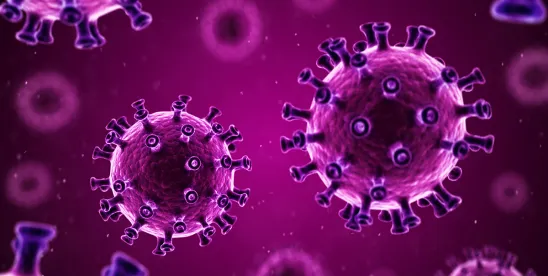Who is eligible for the 2020 recovery rebates?
All U.S. residents with adjusted gross income up to $75,000 ($150,000 joint return, $112,500 head of household), who are not a dependent of another taxpayer and have a work-eligible social security number, are eligible for the full $1,200 ($2,400 joint return) rebate. In addition, they are eligible for an additional $500 per dependent child under age 17. This includes individuals without any income and individuals whose income comes from non-taxable means-tested benefit programs.
The rebate amount is reduced by $5 for each $100 a taxpayer’s income exceeds the phase-out threshold. The amount is completely phased out for single filers with incomes exceeding $99,000, $146,500 for head of household filers with one child, and $198,000 for joint filers with no children (Section 2201).
Is any action required on the part of the individual to obtain the rebate check?
For most people, no action is required to receive a rebate check because the IRS will determine eligibility using a taxpayer’s 2019 tax return, if filed, or 2018 return otherwise. Payment of the rebate may be made directly to the taxpayer’s account authorized on or after Jan. 1, 2018.
Is there a deadline for the secretary to issue the rebate?
The Coronavirus Aid, Relief, and Economic Security Act (CARES) provides that rebates shall be sent “as rapidly as possible” and not later than Dec. 31, 2020.
What happens if an individual needs to make an early withdrawal from their retirement account for a coronavirus-related purpose?
The Act allows qualified retirement plans to make “coronavirus-related distributions” of up to $100,000 on or after Jan. 1, 2020 and before Dec. 31, 2020 to individuals who certify they have a qualifying coronavirus-related reason (e.g., the individual or the individual’s spouse is diagnosed with COVID-19 by a CDC-approved test). The 10 percent early withdrawal penalty does not apply to coronavirus-related distributions. In addition, the income tax attributable to such distributions can be spread over three years, and the taxpayer may recontribute the funds to an eligible retirement plan within three years without regard to that year’s Internal Revenue Code limits on contributions. The Act also allows qualified plans to increase the limit on participant loans to $100,000 for individuals who meet the criteria for a coronavirus-related distribution (Section 2202).
What qualifies as a coronavirus-related distribution?
A coronavirus-related distribution is generally one made to an individual: (1) who is diagnosed with COVID-19 by a CDC-approved test, (2) whose spouse or dependent is diagnosed with COVID-19 by a CDC-approved test, or (3) who experiences adverse financial consequences as a result of being quarantined, furloughed, laid off, having work hours reduced, being unable to work due to lack of child care due to COVID-19, closing or reducing hours of a business owned or operated by the individual due to COVID-19, or other factors as determined by the Treasury secretary (Section 2202).
Is there relief for individuals whose retirement savings have significantly declined due to recent market volatility?
Yes. Required minimum distributions are waived for certain defined contribution plans and IRAs for calendar year 2020 (Section 2203).
As with the required minimum distribution waiver in 2009 for the 2008 financial crisis, the 2020 waiver avoids the need for eligible plan participants and IRA owners to liquidate investments at a time when the stock and bond markets reflect the economic volatility of the coronavirus pandemic.
Can individuals who do not itemize their deductions make a deduction for charitable contributions?
Yes. The Act allows taxpayers who do not elect to itemize deductions to deduct up to $300 of cash contributions to many charities. (Section 2204)
Is there an increase on limitations of charitable contributions for individuals during 2020?
Yes. It increases the limitations on deductions for certain charitable contributions by individuals who itemize. Individuals may elect to suspend the 60-percent-of-adjusted-gross-income limitation for cash contributions to certain charities in 2020 (Section 2205).
Is there an increase on limitations of charitable contributions for corporations during 2020?
Yes. Corporations may elect to increase the 10 percent of taxable income limitation to 25 percent for cash contributions paid to many charities in 2020.
Is there an increase on limitations of charitable contributions of food inventory during 2020?
Yes. For any trade or business (regardless of whether a C corporation), there is generally an increase in the limitation on deductions for charitable contributions of food inventory in 2020 from 15 percent to 25 percent of the taxpayer’s applicable income base (Section 2205).
If an employer is providing student loan repayment benefits, is this contribution tax-free to the employee?
The Act exempts from federal income tax certain student loan repayments made to or for employees under an employer’s Educational Assistance Program (Section 2206).
Is there a cap on the amount of the student loan repayment benefit?
Yes, an employer may pay up to $5,250 through a qualifying Educational Assistance Program annually toward an employee’s qualifying student loans, and that payment may be excluded from the employee’s income (Section 2206).
Which student loans are eligible for the student loan repayment benefit?
The income tax exclusion applies to student loan payments made to or on behalf of an employee by an employer under a qualifying Educational Assistance Program after March 27, 2020 and before Jan. 1, 2021, but only if the interest on the loan could qualify as deductible student loan interest to the employee and the employee does not claim the deduction for the payment. The $5,250 annual cap applies to the total amount of both the new student loan repayment benefit as well as other educational assistance (e.g., tuition, fees, books, etc.) provided by the employer under current law (Section 2206).





 />i
/>i
